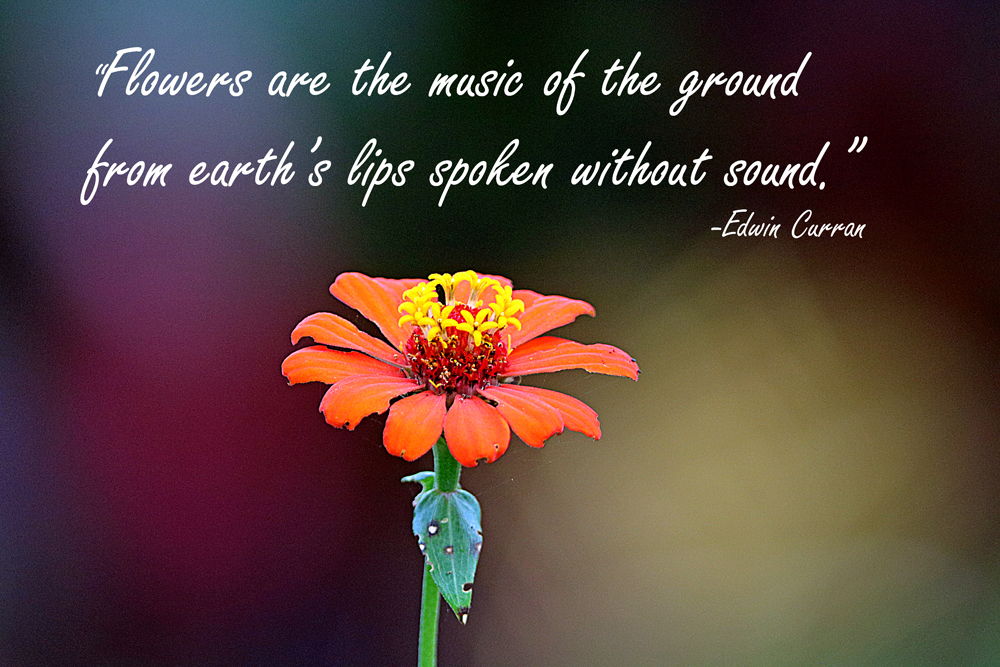
¡Pura Vida!

¡Pura Vida!
The Rufous-tailed Hummingbird, Amazilia tzacatl (linked to eBird) is a Central American bird overlapping only into the northern edges of South America and found literally all over Costa Rica as can be seen in my GALLERY, Rufous-tailed Hummingbird. It has long been the dominant hummingbird in my garden, often chasing off other species, though now I am seeing just as many or more of the Blue-vented Hummingbird. Here’s two shots of this species in my garden recently, the first a juvenile or immature adult (smaller) and the second a mature adult . . .
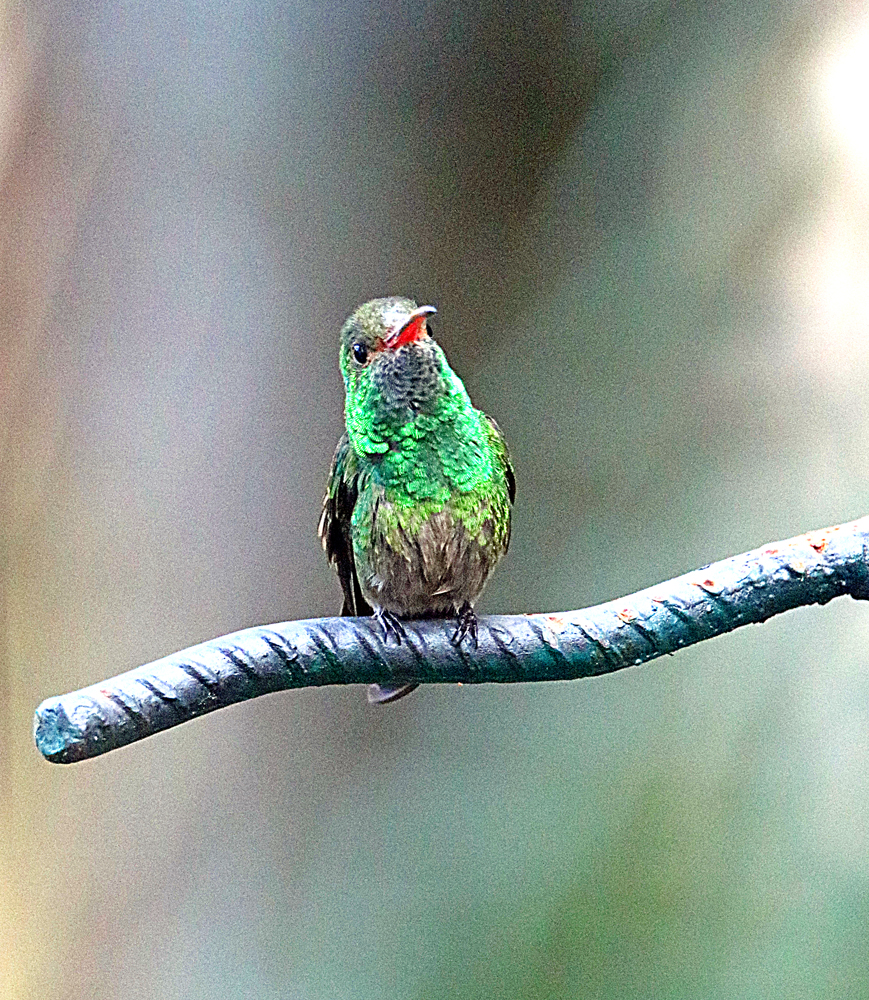
Colorful in both design and colors, this longtail skipper is anything but dull! See more in my GALLERY: Spot-banded Longtail. And here’s three shots from the other day . . .
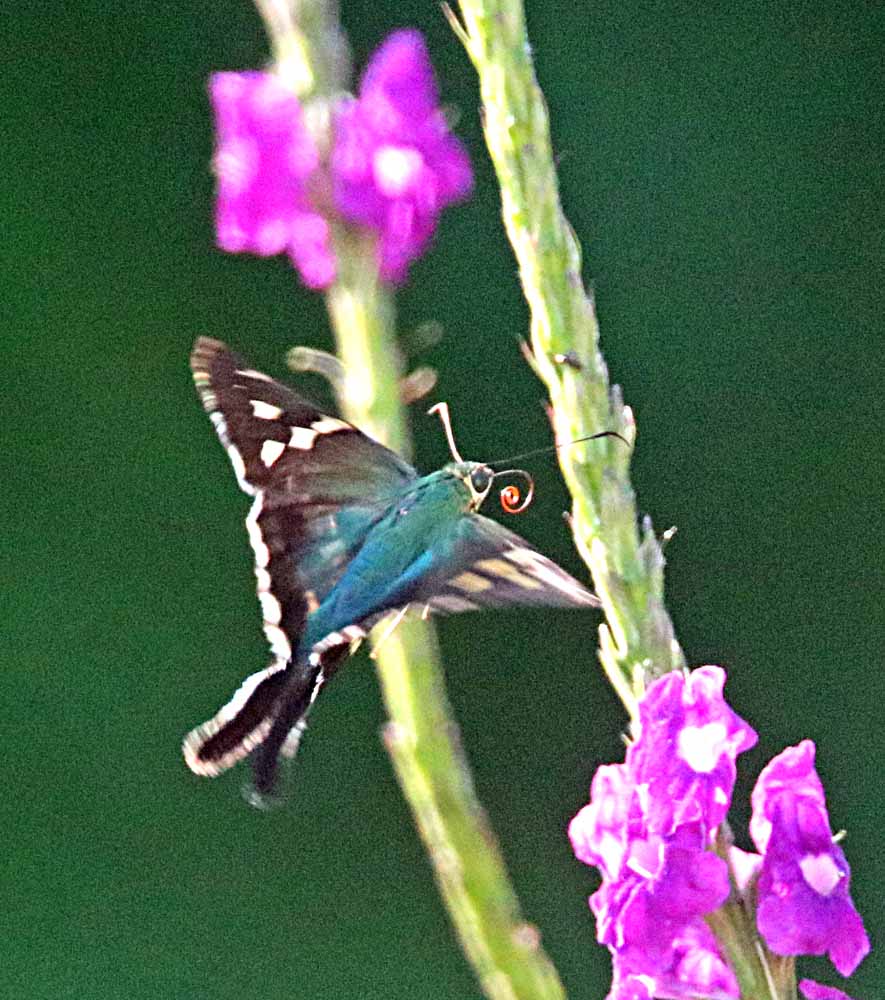
I remember seeing this bird on my first trip to Costa Rica back in 2009, down on the southern end of Osa Peninsula near Corcovado NP at Lookout Inn, Carata. He’s a handsome bird without the extravagant colors of many tropical birds. And now he’s a regular in my garden! 
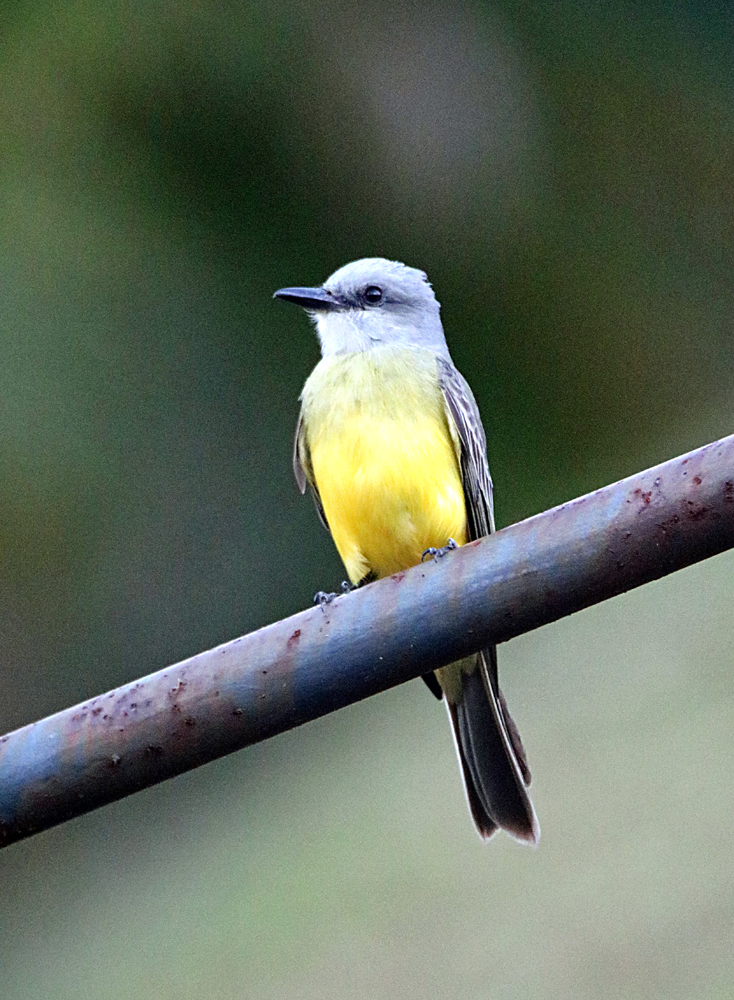
Is another one that seems mis-named with no obvious yellow, though one that I found online did have a golden yellowish hue. 

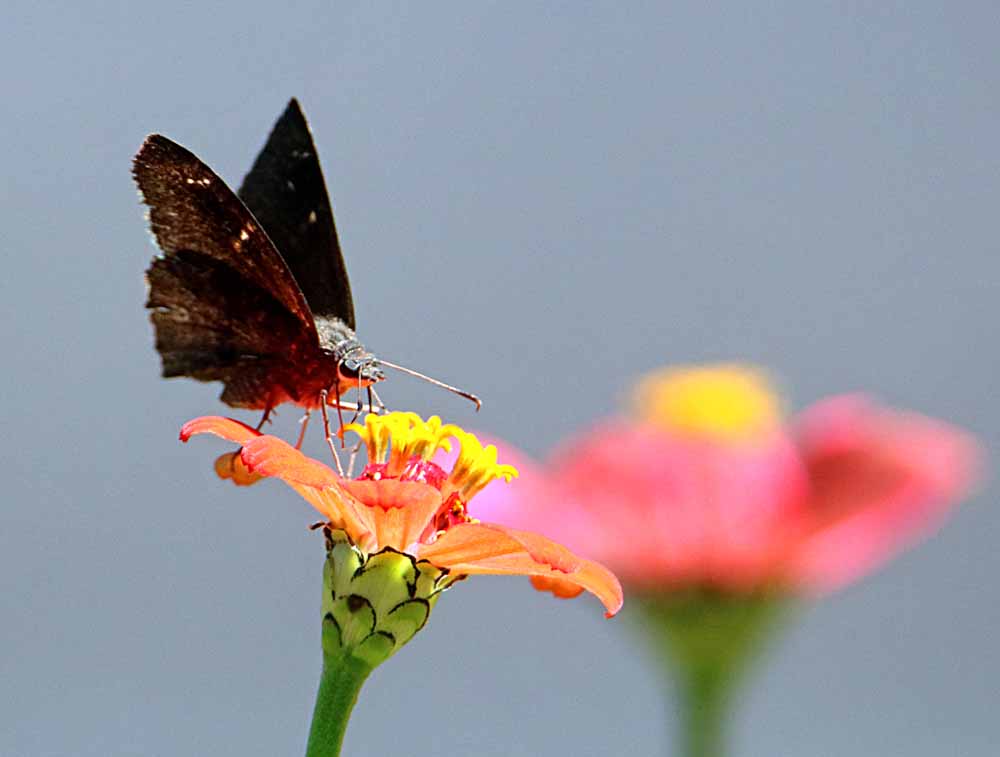
. . . is still my #2 hummingbird but could takeover my gardens as #1 with seemingly only one Rufous-tailed Hummingbird active now that I quit using the feeders. (I keep debating with myself over using feeders or not.)
See more of my photos of this colorful bird in my Blue-vented Hummingbird Gallery. I’ve photographed this one in only two places, here in Atenas (2 locations) and once at Xandari Resort in Alajuela.
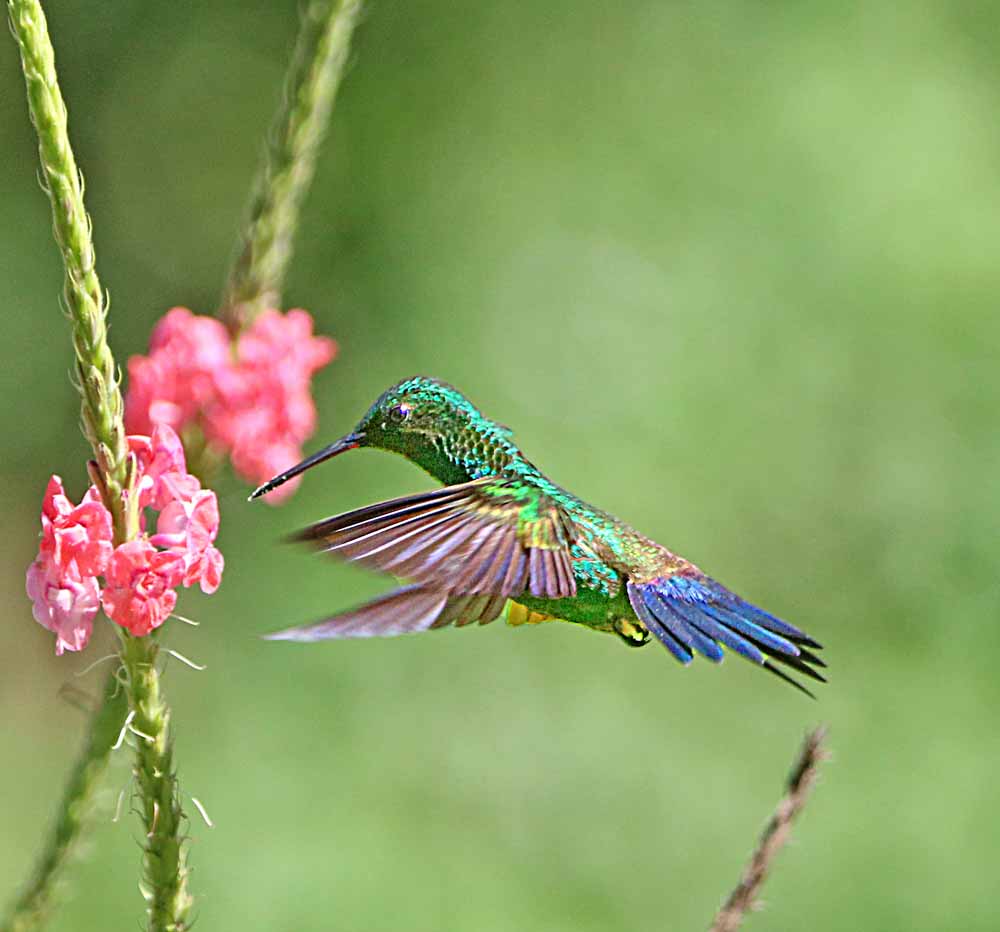
¡Pura Vida!
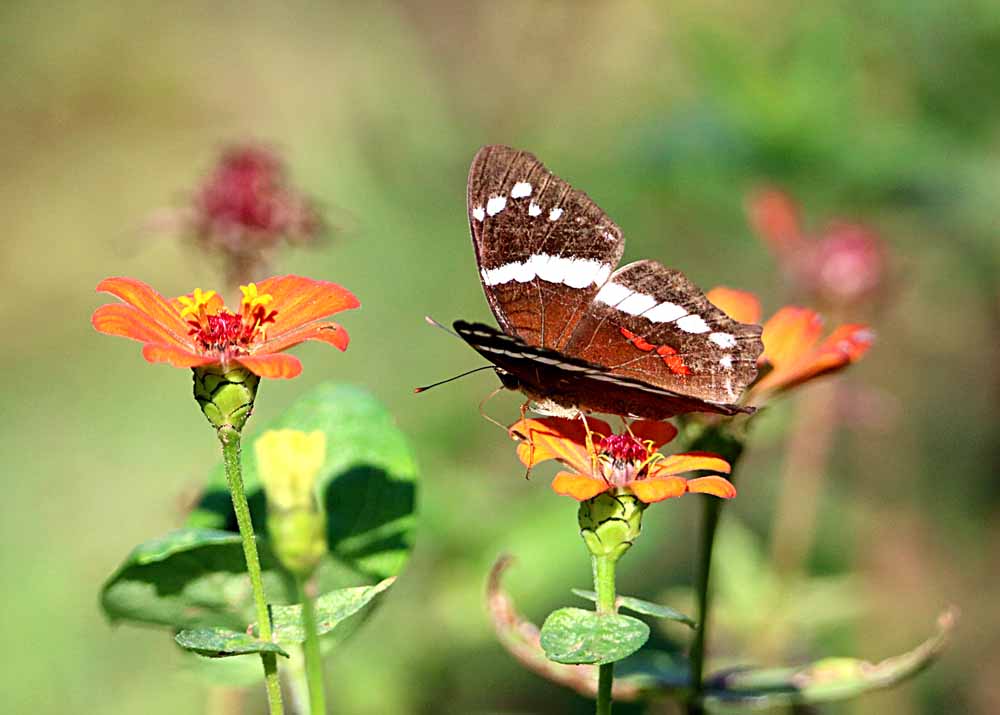
The little Zinnia Patch in my uphill garden is fading just as are the number and type of butterflies with the Banded Peacock being the most numerous butterflies now, along with the less-noticed Skippers and a few Yellows that seldom land. Below is a slide show of my images of the fading Zinnias and Banded Peacocks in front of my “Bird & Butterfly Bench” as I will now be more focused on the birds than butterflies for a while, though we do have some butterflies year around in our “forever Spring!” 

. . . on a busy street in downtown Atenas, Alajuela Province, Costa Rica. I was in a taxi running errands downtown when I realized that the man in the tree was not a tree-trimmer but a National Park employee rescuing a Hoffmann’s Two-toed Sloth, Choloepus hoffmanni (my gallery link) from a tree near Central Park on a busy street full of businesses where he/she would certainly be killed by a car soon. He/she will be taken to a national park or wildlife reserve to live peacefully in the wild as God intended. I jumped out of the taxi and tried to make a few photos with my cell phone, which show what was happening but are not good shots of the sloth. They are all difficult to photograph as mainly big balls of fur that don’t frequently show their faces (both 2 & 3 toed). Just a report of a moment of excitement in busy, pre-Christmas, downtown Atenas! (For which my stopped taxi blocked traffic for about a minute on Calle 1!)
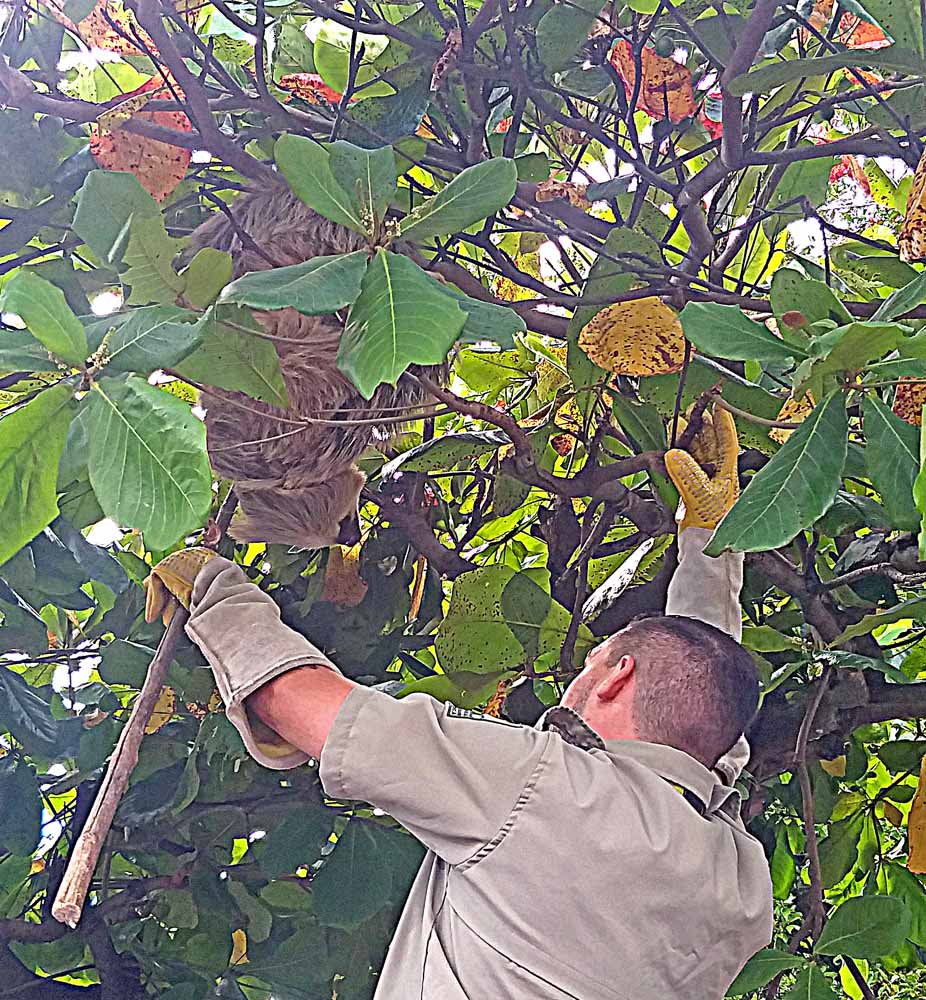
More photos in the online version of the blog post . . .
Continue reading “Sloth Rescue . . .”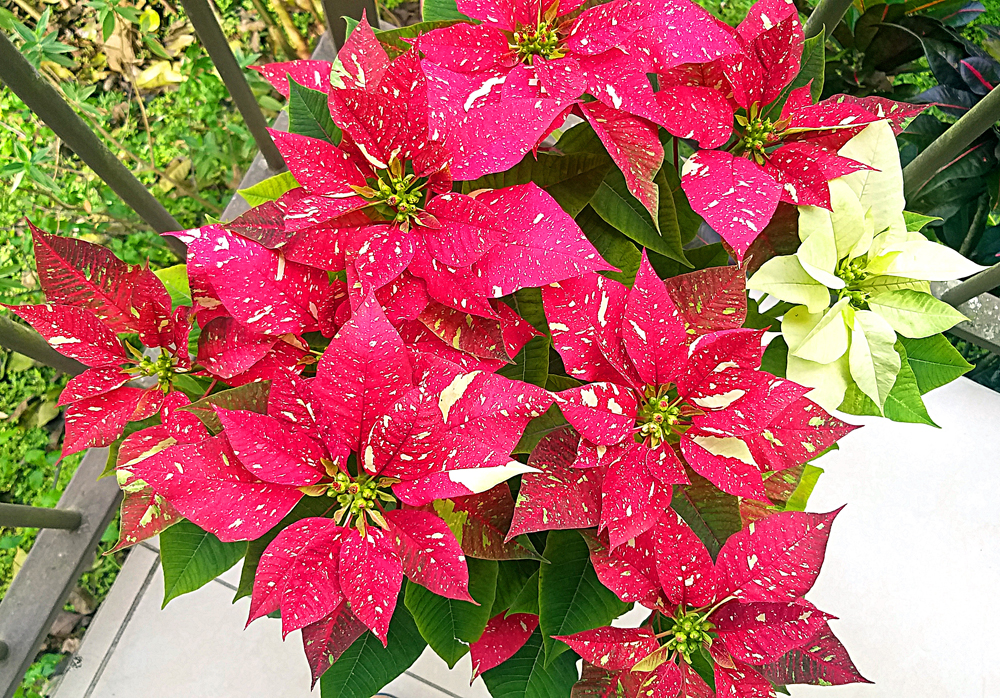
¡Pura Vida!
¡Feliz Navidad! Merry Christmas!
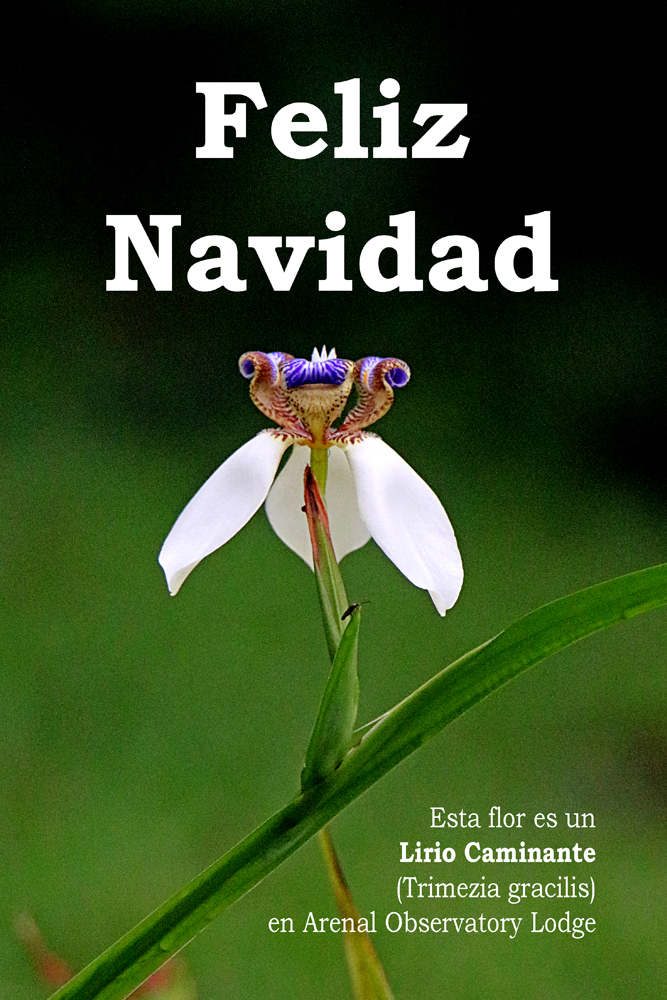
“The native range of this flower species is W. Central & SE. Brazil to Paraguay. It is a rhizomatous geophyte and grows primarily in the seasonally dry tropical biome.” And of course in Costa Rica!
And with this unusual flower comes a very
Keep reading my blog for more pura vida!
On this Christmas Eve I will celebrate 10 years of living in Costa Rica and will spend Christmas Eve and Christmas Day in one of many favorite nature lodges, Xandari Resort in Alajuela. Close to home and San Jose because the morning after Christmas I go to the nearby Hospital Mexico in San Jose for an ultrasound image of my neck to help the doctors continue monitoring any possible spread of cancer to the thyroid gland and lymph nodes (which is common for my type of cancer). The great public health system in this wonderful little country is taking good care of me in my old age! (Even with an appointment the day after Christmas!)
¡Pura Vida!